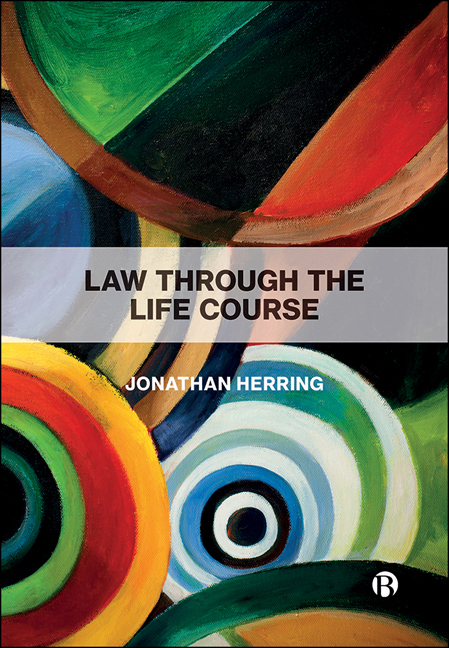5 - Adulthood
Published online by Cambridge University Press: 05 January 2022
Summary
Introduction
In many ways this was the hardest chapter of the book to write. While it would not be difficult to find books and articles on law and children, and law and older people, Law and Adults does not seem to have captured the market, or even the legal imagination. Admittedly, it looks like a hard sell.
Adulthood is a blank. The legal literature appears not to have any special rules that relate to adulthood. Similarly, in the sociological literature, while we might have a reasonably clear conception of what old age and youth look like, middle age is more of a blur. This, however, is revealing and significant. The law has no special ‘law of adulthood’ because that is the standard law. Look at a standard textbook on criminal law, tort law or contract law to find the law of the adulthood. That will not be stated overtly, but such books will typically include brief sections on how the law operates with regard to children, or to people with impaired capacity, as ‘exceptional cases’. Indeed, it would be perfectly possible, and may be quite common, for a student to go through their legal studies having read no cases on children or older people. Our students leave university well able to advise the businessperson on a commercial contract but utterly unable to advise the 15-year-old who finds herself pregnant, or the 80-year-old with dementia who opposes her family's plans to put her into a care home.
This chapter will not, therefore, list a series of special legal provisions that deal with adulthood. Rather, it is the unspoken assumption that what applies to an adult person is the ‘normal’ law. Yet it will be argued in this chapter that this assumption, and the assumption of what a typical adult person is like, has a profound impact on the values underpinning the law. Before examining that a little more, the nature of adulthood will be discussed.
Sociology and adulthood
Adulthood in sociology is both key and invisible. It is ‘a central category’ because ‘it provides the unarticulated background to a majority of social enquiries’. But the meaning of adulthood is rarely expressed because it is taken as the default category. So, although it appears in the literature, it is often in the shadow as the stage towards which children are heading, and the stage from which older people have headed away. It therefore goes unarticulated and unchallenged.
- Type
- Chapter
- Information
- Law through the Life Course , pp. 125 - 148Publisher: Bristol University PressPrint publication year: 2021



